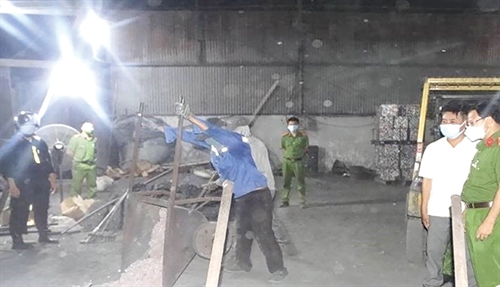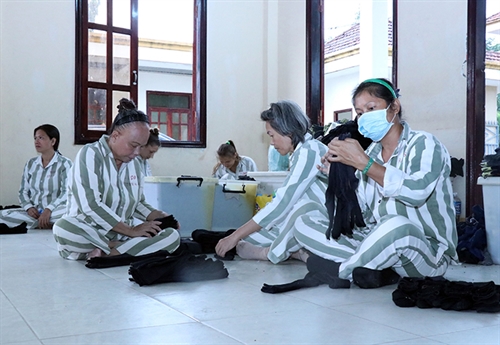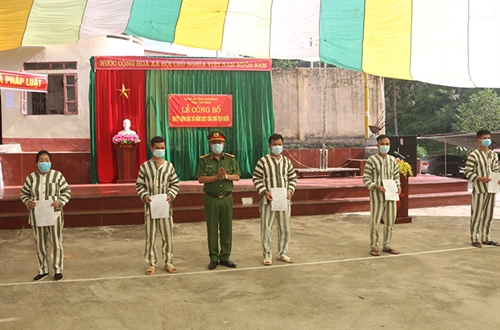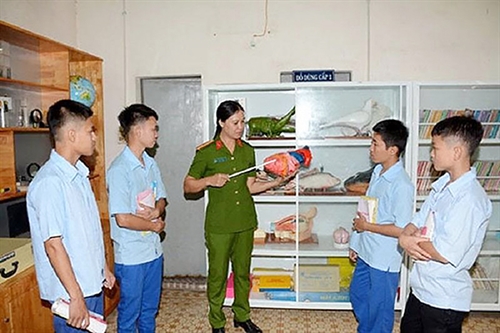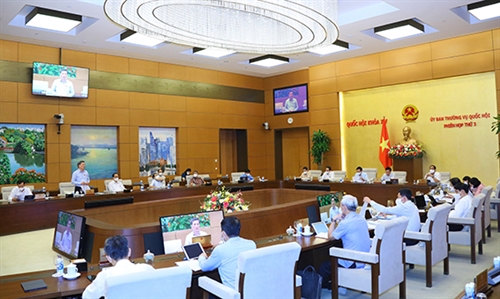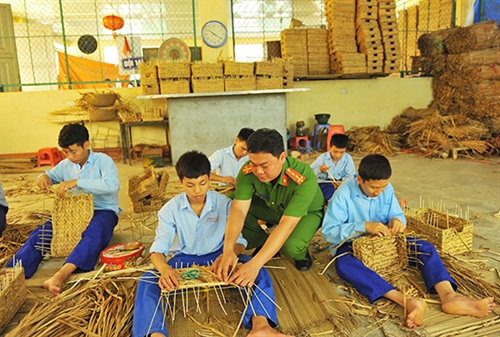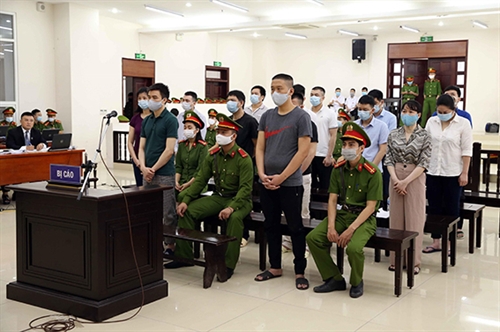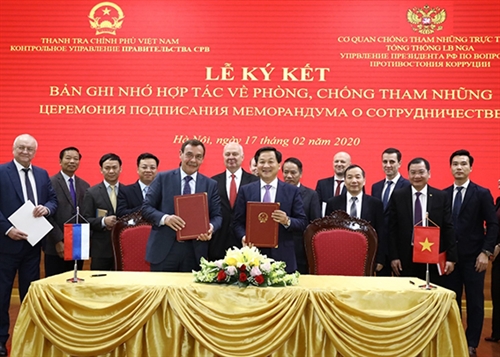This article analyzes the provisions on guarantee of rights and interests of female victims under the 2015 Criminal Procedure Code and proposes solutions for intensifying the protection of women as a vulnerable group in conformity with international law and legal conditions of Vietnam.
Tran Thi Lien, LL.D.
Criminal Law Faculty, Hanoi Law University
Criminal procedure provisions regarding protection of female victims of crimes
Women participating in the criminal proceedings in the capacity as victims have the rights provided in Article 62 of the 2015 Criminal Procedure Code (the Code). Among such rights, there are some gender-specific rights aimed at protecting female victims, e.g., the right to request initiation of criminal cases against the crime of rape[1] or having forcible sexual intercourse[2]; and the right to request presence of female officers, as examiners or observers, in examining traces on the victims’ bodies to find traces of crimes or other traces important for the settlement of the criminal cases, without causing harms to their honor, dignity or health. However, there remains a lack of provisions on priority rights based on biological and social characteristics of women.
Firstly, the Code has no provision allowing women to request female officers to receive their crime reports or denunciations[3], in cases in which these women have had their health, life, honor or dignity harmed by such crimes, particularly victims of sexual assault or domestic violence.
The Code also lacks a provision requiring officers who receive reported information or denunciations about crimes involving female victims to keep personal secrets for those victims, especially in sexual assault cases, throughout the course of criminal proceedings, even in case no criminal cases are initiated.
Secondly, the criminal procedure law says nothing about requiring presence of female investigators in the stage of investigation of criminal cases to take statements of female victims or allowing female victims to give their statements to female investigators. This is a drawback because the participation of female officers in the taking of statements may help female victims feel secure and make statements involving sensitive details more easily than when they do this before male investigators.
The Code is also silent about the necessity of presence of medical doctors or psychiatric experts in the taking of statements of female victims to render psychological aid to victims, especially pregnant victims or female victims currently nursing their newborns, and assist investigators in taking statements of victims without causing psychological harms to them. For female victims who have physical or mental defects, the Code again does not require presence of their representatives to help guarantee their rights.
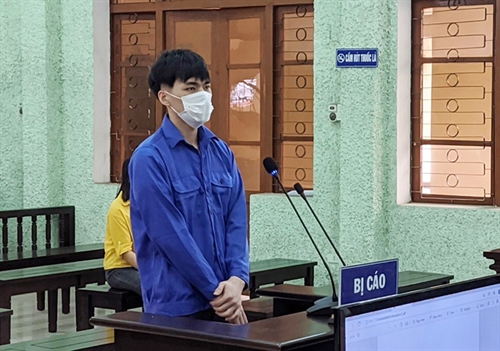 |
Trieu Van Manh, 22, at a court hearing on June 25, 2021, where he was sentenced to 22 years of imprisonment for human trafficking and swindling__Photo: Hoang Tien/VNA |
| Trieu Van Manh, 22, at a court hearing on June 25, 2021, where he was sentenced to 22 years of imprisonment for human trafficking and swindling__Photo: Hoang Tien/VNA |
For female victims for whom expert assessment is required to find traces of crimes on their bodies or to determine the nature of injury and degree of harm to their health or their working capability, the Code has no specific provisions to guarantee their privacy during the expert assessment. It states that when conducting the expert assessment, “Investigators, procurators, judges and expert assessment requesters may participate in the expert assessment but shall notify such in advance to expert witnesses”. However, the Code does not specify cases in which women are subject to expert assessment performed only by female expert witnesses and investigators in assessment rooms and no one else may be present in such rooms unless they are permitted by expert witnesses in order to best protect honor, dignity or health of these women.
By international law standards, it is obvious that Vietnam’s criminal procedure law lacks a special mechanism for protecting rights of female victims in the course of evidence collection. To date, there is no detailed guidance on collection of evidence by investigators and investigation bodies aimed at ensuring safety for and privacy of female victims. In reality, the country still lacks physical facilities and trained human resources to collect crime evidence in a women-friendly manner, especially in sexual assault and domestic violence cases.
Thirdly, there remain inadequate provisions on procedures for guaranteeing rights of female victims in the stage of trial of criminal cases. For example, the Code has no provisions on flexible methods of taking testimonies of female victims at court hearings for such cases[4]. Likewise, there are no legal texts guiding cases in which involved parties, including female victims of sexual assault, domestic violence and human trafficking, may legitimately request the court to hold in-camera hearings to protect their honor and dignity. Also, there is no provision requiring that a first-instance trial panel of a criminal case involving female victims must have at least one female assessor to help these victims give their testimonies and answer questions of the trial panel.
Recommendations to improve the criminal procedure law
As the lack of women-friendly specific provisions in the Code has caused not a few difficulties to the protection of lawful rights and interests of female victims during criminal proceedings, the author recommends supplementations to Articles 145, 188 and 308 of the Code.
Firstly, Article 145 of the Code should be supplemented as follows:
“Article 145. Responsibility to receive and competence to process offense denunciations, reported criminal information and criminal case initiation proposals
1. All offense denunciations, reported criminal information and criminal case initiation proposals shall be fully received and promptly processed. Entities responsible for receiving offense denunciations, reported criminal information and criminal case initiation proposals may not refuse to receive them. Women who denounce or report offenses may request verbally presenting their denunciations or information to female officers and, in case of necessity, may request officers who receive their denunciations or information to keep secret their personal information.”
Secondly, it is a need to add Article 188 with a provision requiring the presence of psychiatric experts or medical doctors in taking statements of female victims. Then, this article should read as follow:
“Article 188. Summoning and taking of statements of victims and involved parties
The summoning and taking of statements of victims and involved parties must comply with Articles 185, 186 and 187 of this Code.
The taking of statements of victims and involved parties may be audio-recorded or audio video-recorded.
In case of taking statements of female victims, such victims may request presenting their statements to female investigators or procurators. In case of necessity, psychiatric doctors or experts may be invited to participate in the taking of statements of female victims. The taking of statements of victims who have physical or mental defects must be participated by their representatives or persons protecting their lawful interests.”
Thirdly, Article 308 should be added with a provision stating that in case a female victim who, for the reason of protection of her reputation or honor, does not wish to give testimonies at the court hearing, the trial panel may use her audio-recorded testimonies or disclose her testimonies recorded in the case file without having to summon her to the hearing:
“Article 308. Disclosure of testimonies given at the stage of investigation or prosecution
…
2. Testimonies given in the stage of investigation or prosecution may only be disclosed in one of the following cases:
…
e/ Inquired persons are women participating in the proceedings in the capacity as victims, who are present at or absent from the court hearing and legitimately request not directly giving their testimonies but only disclosing their testimonies previously given in the stage of investigation or prosecution. In case of necessity, the trial panel may decide to use audio-recordings of previous testimonies of victims.”
Moreover, the Code should be inserted with an article on in-camera trial in case female victims with their health, life, honor or dignity harmed by crimes so request in order to protect their privacy and prevent impacts on their life. Part of such article should read:
“Article… In-camera trial
1. In the following cases, the court may hold an in-camera trial at the legitimate request of involved parties:
a/ Victims are women who have had their health, life, honor or dignity harmed by crimes or victims of crimes infringing upon the marriage and family regime.”.-
